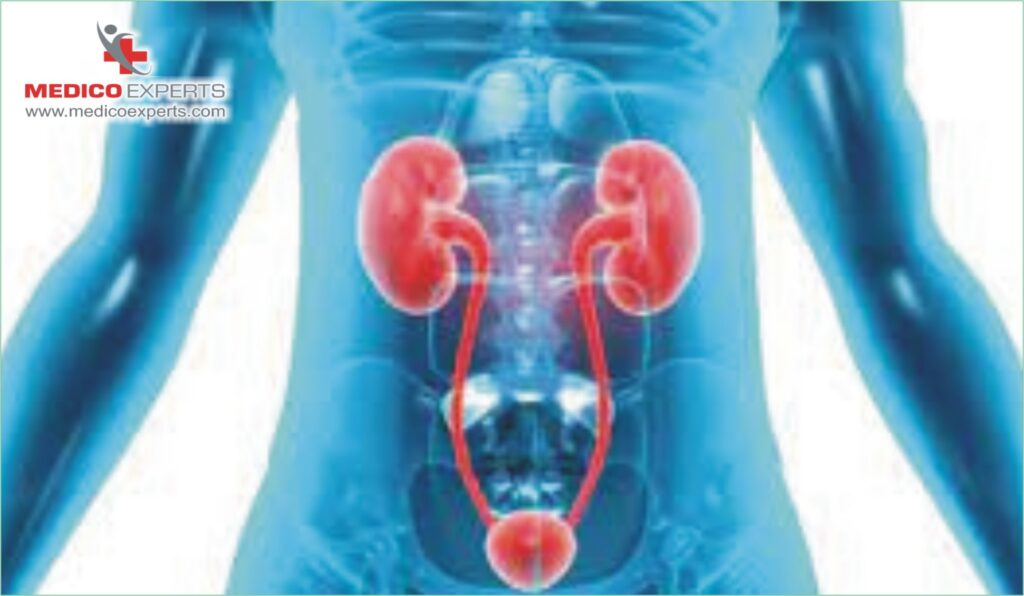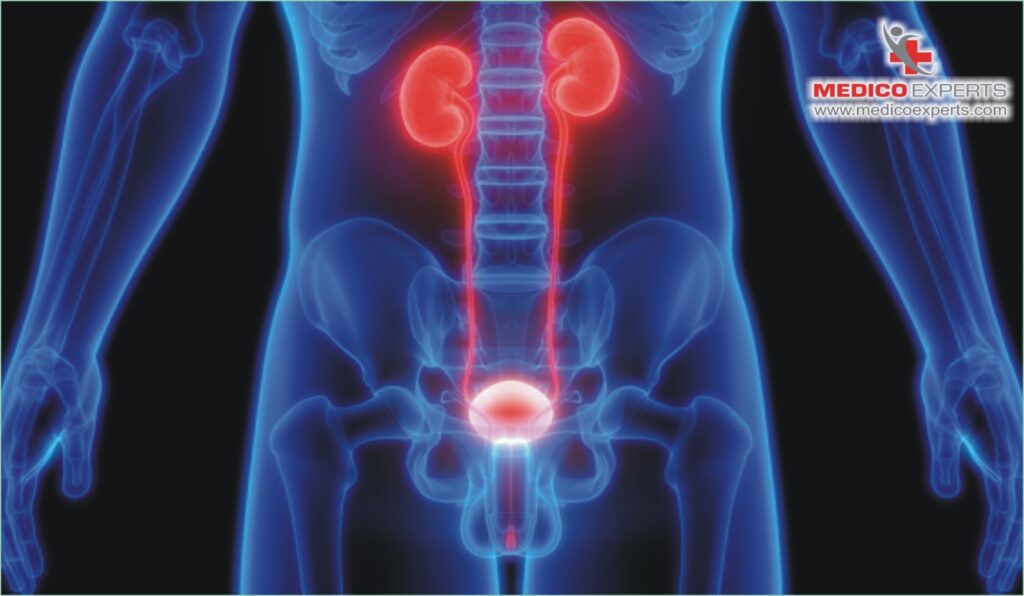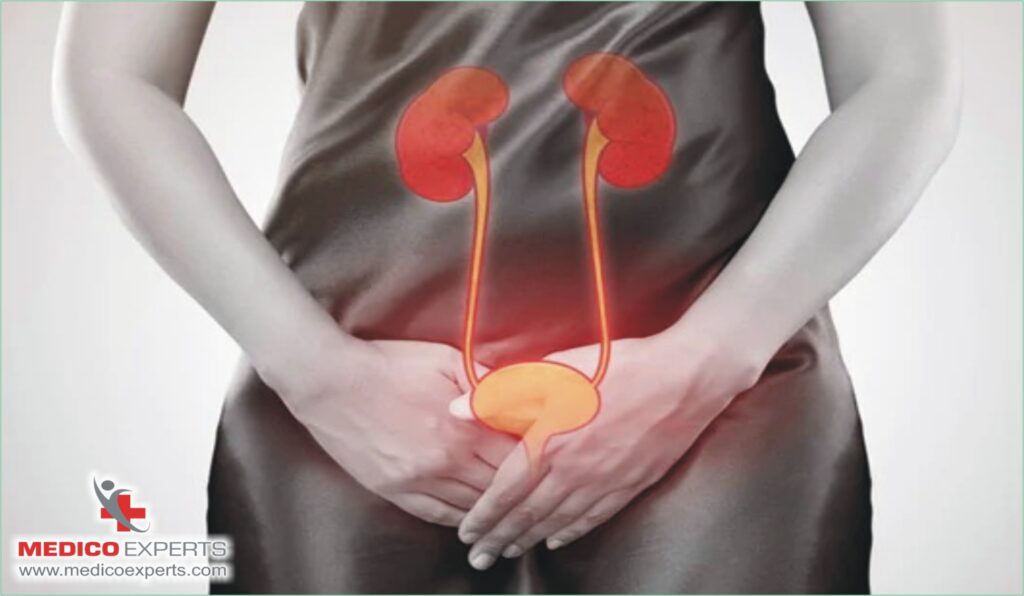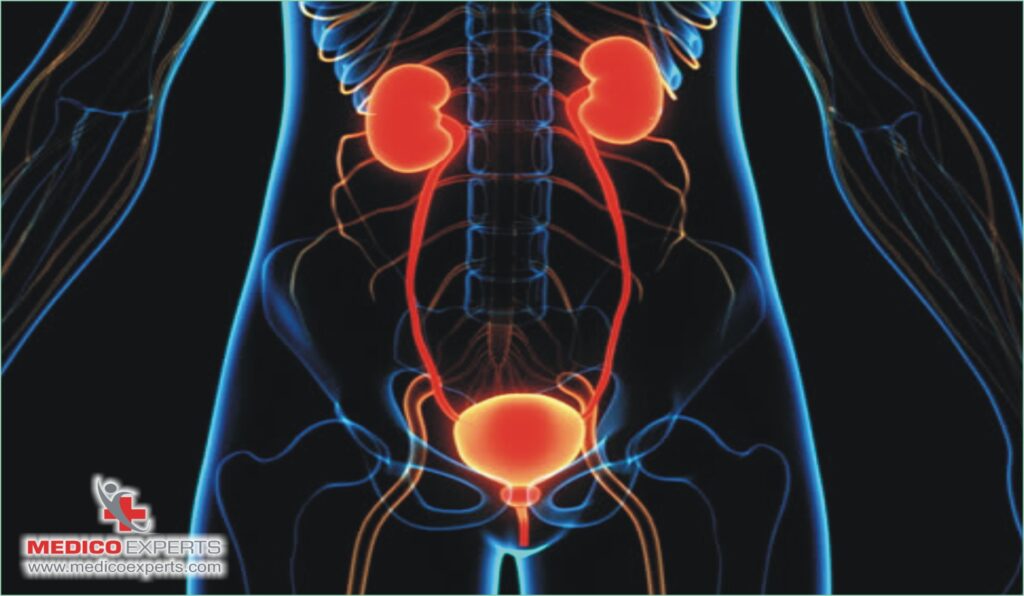If you are diagnosed with bladder cancer, you may have many questions in your mind.
The most pressing one among them could be “Is bladder cancer treatable?”
This question may bring uncertainty in your mind regarding your future and you may be wondering what’s coming next.
You will be relieved to know that bladder cancer is treatable.
At the same time, you will feel much more confident once you understand the available treatment options and also the fact that if bladder cancer is treated early, you increase the chances of treating it completely.
We have prepared this guide to assist you in your journey to treat bladder cancer. The guide provides concise information to support you in making the optimal decision for your health and well-being.
What are the Causes of Bladder Cancer?

Any cancer occurs when cells start growing out of control. Bladder cancer develops in a similar manner. These abnormal cells can lead to tumors that may originate in the organ’s inner lining and then spread to the bladder walls or other organs if left untreated.
Doctors and experts do not know the exact cause of bladder cancer. However, certain risk factors can increase your chances of developing this cancer.
- Smoking increases the risk of bladder cancer.
- Age is another risk factor. People aged 55 and above are at risk.
- Frequent catheter use in the bladder can also cause bladder cancer.
- Radiation therapy for cancer increases the risk of bladder cancer.
- Chemotherapy drugs also increase the risk.
- People who frequently have bladder infections are at risk.
- Research has also shown that bladder cancer may have a genetic component.
The use of certain herbs like Aristolochia fangchi (a Chinese herb) is linked to bladder cancer.
Is bladder Cancer Treatable?

Bladder cancer is treatable, and you can increase your chances of being completely treated by detecting and treating it early.
The treatment will depend on the stage, grade, and type of bladder cancer. Consequently, your doctor will prescribe the appropriate treatment. Below are some common procedures used to treat bladder cancer.
Surgery
The type of surgery will depend on the stage, grade, and type of bladder cancer. So, let’s check what the different types of surgery doctors use to treat it are:
1. Cystectomy
Doctors may use surgery to remove all parts of your bladder or to create a new way for the urine to pass. Cystectomy is done to remove all parts of the bladder when the cancer has grown to the walls of the bladder.
There are two types of this surgery. A radical cystectomy removes the bladder and surrounding tissues, while a partial cystectomy removes parts of it.
Radical cystectomy sometimes involves removing the prostate (a gland in the male reproductive system) and seminal vesical (part of the anatomy that is considered typically male) or in the case of a female, their ovaries, uterus, and felodipine tubes.
This procedure is done when cancer has grown to the muscle tissues or cancer that has a chance of recurrence. A partial cystectomy is done in rare cases to remove a tumor from one part of the bladder.
2. Urinary Diversion Surgery
After your bladder has been removed during a radical cystectomy, your surgeons need to make a new way to store the urine and pass it out.
Urinary diversion surgery is done to create a new way. In this procedure, the doctor may create an internal pouch to store the urine or they may attach the ureters to a new opening in your body.
There are three types of urinary diversion surgery:
- Neobladder Reconstruction: Your surgeon creates a sphere-shaped reservoir or storage out of your intestine in Neobladder reconstruction. This storage is seated inside your body and attached to the urethra.
- Ileal Conduit: Your surgeon will create a tube using a piece of your intestine and this tube will run from the ureters to the outside of your body. The urine will be emptied into a pouch known as a urostomy bag that you wear on your abdomen.
- Continent Urinary Reservoir: In this procedure, the surgeon creates a urine storage using your intestine and the urine passes through a hole in your abdomen using a catheter.
3. Transurethral Resection of Bladder Tumor (TURBT)
Your doctor may also use Transurethral resection of bladder tumor (TURBT) if it’s an early-stage bladder cancer. They will insert an instrument through your urethra to remove the tumor during TURBT.
Doctors use TURBT as the first line of treatment for non-muscle invasive bladder cancer. Here’s how the procedure is done:
- You will be given anesthesia.
- Then, the doctors insert a cystoscopy which is a thin tube with light and a camera through your urethra and bladder.
- Next, the doctors use a small tool to remove the tumor
- After that, doctors apply heat to stop any bleeding
- Lastly, doctors remove the cystoscope and insert a catheter
Chemotherapy
Doctors may use Intravesical and Traditional Chemotherapy for the treatment. Intravesical chemotherapy is a targeted treatment where chemotherapy drugs are injected directly into your bladder.
On the other hand, intravesical chemotherapy may be combined with traditional chemotherapy to kill cancer cells throughout your body. This combination helps increase the effectiveness of radiation therapy.
To learn more about chemotherapy, check our article on it: https://www.medicoexperts.com/side-effects-of-chemotherapy/
Radiation Therapy
In this therapy, a high-energy radiation beam is used to kill cancer cells. For bladder cancer, external beam focus radiation therapy is used. In this therapy, a beam outside your body is focused on your cancer the way X-ray is done.
For the therapy, a machine is used that moves around your body. The focus is on the exact point affected by cancer.
Radiation Therapy can be used for bladder cancer in three ways:
Palliative therapy is used to give relief from pain and control symptoms of bladder cancer.
Adjuvant radiation therapy destroys cancer cells that are still present after the surgery to lower the risk of cancer coming back.
Chemoradiation therapy is using radiation therapy and chemotherapy together to treat the cancer.
Immunotherapy
Immunotherapy uses your immune system to treat cancer. It helps the immune system recognize and fight cancer cells. Some drugs are used in muscle-invasive bladder cancer.
Your doctor may ask you to undergo immunotherapy after bladder cancer surgery. They do it to lower the risk of cancer recurrence. This immunotherapy is called adjuvant immunotherapy. Doctors will use it if the bladder cancer has spread to other parts of the body.
Doctors will ask you to undergo immunotherapy:
- You have a high risk of cancer recurrence and chemotherapy cannot be used in your case.
- Your cancer is creating high levels of a protein called PD-L1.
There are different types of immunotherapy used for bladder cancer treatment. The most common types are below:
1. Intravesical Immunotherapy
The drug is directly put into the patient’s bladder using a catheter. This immunotherapy is used for treating early-stage bladder cancer. There can be side effects like flu-like symptoms and a burning feeling in the bladder.
2. Intravenous Immunotherapy
In this immunotherapy, doctors will inject the drug through your vein. It is used to treat advanced bladder cancer or cancer that is recurring.
What should you know about post-treatment care?

You need to know about these things after the treatment of bladder cancer. Let’s find out what they are.
- Follow-ups with doctors are very important. You need to visit your doctor regularly for check-ups. During the initial 2 to 3 years post-treatment, you should have a check-up every 3 to 4 months.
- You need to take care of your mouth because after chemotherapy, it can become dry, and you may develop sores. Therefore, you should brush your teeth with a soft toothbrush after every meal and at bedtime.
- You may feel lethargic and fatigued for months or years, but it will improve with time.
- You should also discuss any side effects with your doctor.
- You should maintain a very healthy diet and gradually begin exercising.
How to prevent Bladder Cancer?

Half of the bladder cancers are preventable and you can reduce the risk by making some lifestyle changes. You can prevent it by
- Quitting smoking
- Drinking plenty of liquid
- Limiting exposure to harmful chemicals
- Have a healthy diet that includes a lot of vegetables and fruits.
Takeaway

If you or a loved one has bladder cancer, you need to know that timely treatment can lead to a complete cure. That’s why early detection and treatment are crucial in this condition.
Detecting it early increases the chances of successful treatment outcomes for you. So, pay close attention to the signs and symptoms mentioned above.
If you notice anything suspicious, contact your doctor right away. MedicoExperts can assist you in connecting with the finest team of doctors for bladder cancer treatment.
Our tumor board reviews your case and then decides on the best treatment plan for you. It aims for you to receive the best cancer treatment at an affordable cost.
Frequently Asked Questions (FAQs):
Q1. Who is most at risk of bladder cancer?
A. People aged 55 and above, smokers, men (more common in men), individuals with a family history of bladder cancer, individuals who drink contaminated water, those who have had radiation exposure, and individuals with certain infections are at risk of bladder cancer.
Q2. Can I live without a bladder?
A. You can live without a bladder. However, you will need a method to collect and pass urine. Doctors perform this through urine diversion surgery.
Q3. What is the most common age for bladder cancer?
A. Around 90% of people diagnosed with bladder cancer are above 55 years of age. This cancer is more common in older people.
Q4. Can bladder cancer be left untreated?
A. Bladder cancer cannot be left untreated as it will spread to other organs and parts of the body. Cancers that are spreading will decide how long the person will live.
Q5. Can bladder cancer be fully cured?
A. Bladder can be cured in some cases. It happens when it is detected and treated early.
Q6. Can you live a normal life after bladder cancer?
A. It is possible to live a normal life after bladder cancer treatment. It will depend on post-treatment care, lifestyle changes, efficient management of fatigue, and joining a cancer support group.
Q7. How many years does it take for bladder cancer to spread?
A. The years to spread the bladder cancer depends on what type of bladder cancer the person has and how far it has already spread.
References
https://pubmed.ncbi.nlm.nih.gov/10841870/
https://www.ncbi.nlm.nih.gov/pmc/articles/PMC3172962/
https://pubmed.ncbi.nlm.nih.gov/6711540/
https://www.cancer.gov/news-events/cancer-currents-blog/2022/bladder-cancer-chemo-effective-alternative-bcg
https://www.ncbi.nlm.nih.gov/pmc/articles/PMC3821989/
https://www.ncbi.nlm.nih.gov/pmc/articles/PMC7788325/
https://www.cancer.gov/about-cancer/causes-prevention/risk/age#:~:text=Age%20and%20Cancer%20Risk,-Advancing%20age%20is&text=The%20incidence%20rates%20for%20cancer,groups%2060%20years%20and%20older.
https://www.ncbi.nlm.nih.gov/pmc/articles/PMC3441175/
https://www.cancer.gov/types/bladder
https://www.ncbi.nlm.nih.gov/pmc/articles/PMC7807319/
https://www.cancer.gov/types/bladder/treatment
https://www.cancer.gov/types/bladder/treatment
https://www.cancer.gov/news-events/cancer-currents-blog/2022/bladder-cancer-chemo-effective-alternative-bcg
Relevant Articles For You
Surgery for cancer is often the primary treatment for solid tumors, with an estimated 60% of cancer patients undergoing…..Read More
Chemotherapy is a common cancer treatment that uses drugs to kill cancer cells in the body. While chemotherapy can be…..Read More
Is radiation therapy safe? you might have this question in your mind if you are planning to go for radiation therapy. In that…..Read More
Recommendations To Understand Different Treatments
Cancer is the leading cause of death worldwide. It resulted in the deaths of nearly ten million people. Cancer deaths are expected to…..Read More
You can have bladder cancer with persistent lower abdominal pain. However, with the introduction of new technology and…..Read More
Intravesical BCG is immunotherapy for non-muscle invasive bladder cancer that kills the cancer cell with minimum side…..Read More
Immunotherapy in India is an option that can help you give your dear one a cancer-free life. The country has seen many…..Read More
Did you know you can reduce painful recovery time significantly while improving the outcome of surgery? The reason behind the…..Read More
Medically Reviewed by MedicoExperts Editorial & Clinical Review Board on 28 September 2024



